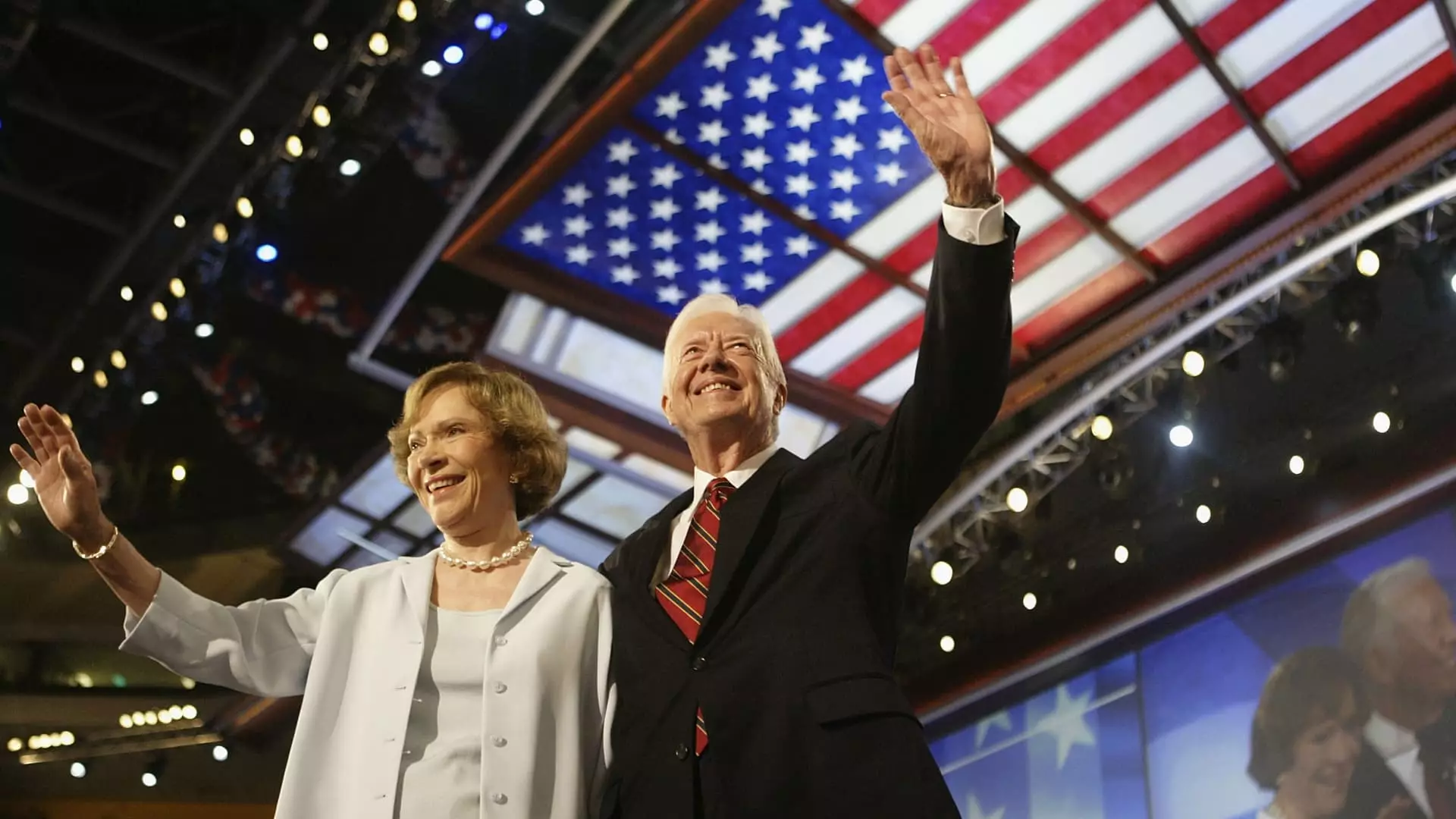The news of former President Jimmy Carter’s passing resonated deeply across the political landscape in the United States. Instantaneous tributes from congressional leaders and governors served as a poignant reminder of Carter’s indelible impact on American society, transcending partisan divides. As tributes poured in from both sides of the aisle, it was evident that his legacy would be defined not solely by his presidency but by an enduring commitment to community service and humanitarian efforts.
From Senate Majority Leader Chuck Schumer to outgoing Senate Minority Leader Mitch McConnell, responses to Carter’s death reflected on his qualities as a leader rooted in humility and kindness. Schumer emphasized that Carter’s greatness lay not in mere words but in the tangible actions he took to uplift others. This sentiment was echoed by McConnell, who highlighted Carter’s agricultural roots, showcasing his life as a continuous cycle of service—just as farmers return to their fields after harvests. These reflections paint a picture of a leader who approached his work with a dedication that echoed throughout his life.
Former President Bill Clinton and Secretary of State Hillary Clinton underscored their personal relationship with Carter, noting their pride in supporting his presidential campaign. This personal touch in their tribute demonstrates Carter’s ability to inspire and nurture relationships that spanned generations. Bill Clinton’s recollection of awarding the Medal of Freedom to both Jimmy and Rosalynn Carter illustrates Carter’s influence that extended well into the political realms that followed his presidency.
The resonance of Carter’s leadership style can be traced in words of praise from Democratic and Republican leaders alike. House Majority Leader Steve Scalise characterized Carter’s life as one of unwavering service, while Democratic Leader Hakeem Jeffries celebrated him as a role model and humanitarian. These bipartisan acknowledgments create a rich tapestry of respect and admiration, showcasing how Carter’s values penetrated the core of American public service.
Carter’s contributions extended beyond politics, particularly in the realms of human rights and community service. The establishment of the Carter Center and its commitment to alleviating human suffering is paramount in preserving the ideals of service and compassion that Carter stood for. His humanitarian work, including his notable collaboration with Habitat for Humanity, revealed a man dedicated to ensuring that individuals had a place to call home.
Senator Mike Lee’s remarks encapsulate a sense of awe towards Carter’s post-presidency, which he characterized as a remarkable endeavor of service. Indeed, many who spoke about Carter emphasized that his real legacy was shaped after he left office. From providing housing for marginalized families to teaching Sunday school, Carter’s dedication to his faith and his community exemplified what it means to be a servant leader. His actions serve as lasting examples of how public figures can contribute meaningfully to society in their later years.
Carter’s enduring legacy will likely inspire countless future leaders and public servants. His commitment to social justice and humanitarian work underscores the potential impact individuals can have, regardless of their political affiliation. Senators like Mark Warner and Andy Kim echoed this sentiment, lauding Carter as a role model whose efforts cultivated a more compassionate world. Such reflections emphasize that true leadership is not defined by one’s title but by the service rendered to humanity.
In a world often characterized by division, Jimmy Carter’s life exemplifies the unifying power of compassion and service. His legacy serves as a reminder of the virtues of kindness, humility, and dedication to community welfare. As individuals across the nation reflect on his life, they are encouraged to carry forward his commitment to human rights and to view leadership as an opportunity to make a difference.
As condolences and tributes continue to stream in from politicians and citizens alike, it is clear that Carter’s influence has transcended his time in the White House. His lifelong commitment to serving others stands as a model for all. Politicians from all sides of the aisle are not just mourning a former president but celebrating a man whose life work embodies the best of American values. As we honor Jimmy Carter, we also reaffirm our commitment to the principles he championed—compassion, service, and unyielding faith in the power of humanity to effect change.



Leave a Reply